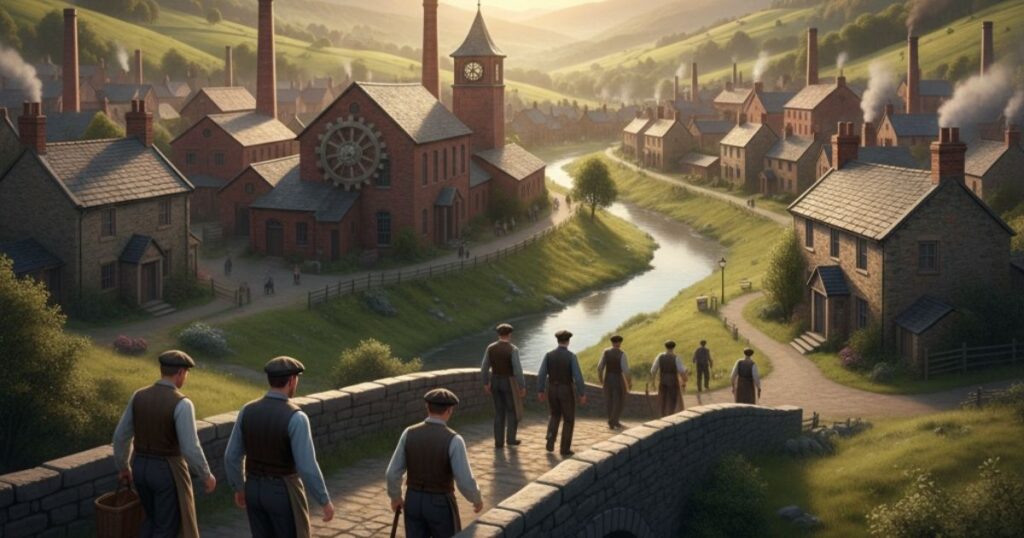Pabington is a fascinating and evocative name that captures attention the moment you hear it. Although it does not exist as an official town or city in historical records, it has the rhythm and structure of many traditional English place names. This makes it both believable and memorable, whether used in storytelling, branding, or as an online identity.
The suffix “-ton,” derived from the Old English word tūn, meaning settlement or town, is commonly found in English toponyms. For those unfamiliar, toponymy is the study of place names and their origins, which is thoroughly explained on Wikipedia. Understanding this helps us see why a name like Pabington feels authentic, even if it is invented.
The Linguistic Structure of Pabington

When broken down, Pabington contains two clear parts:
- Pabing-: The unique, creative element. This part does not have a recorded history, which suggests that it may have been invented or adapted from a nickname or initials.
- -ton: A traditional suffix that makes it sound like an English town. It is also found in countless real names such as Paddington, Abington, and Worthington.
Because of this structure, Pabington fits perfectly into the family of place-like words that instantly resonate with English-speaking audiences.
Is Pabington a Real Place?
At present, Pabington does not appear on any geographical map as a real town or village. It behaves more like a neologism—a newly created word designed to mimic traditional place names.
This makes it particularly interesting in modern contexts where creators, writers, and businesses deliberately invent names that carry emotional weight, even though they are not tied to a specific history or location.
Possible Origins of Pabington
Since there is no single official record, there are a few possible origins behind the rise of Pabington:
- Inspired by Similar Names
The sound is reminiscent of names like Abington and Paddington. Someone may have coined it to capture the same cozy, old-English feel. - Creative Coinage
“Pab” might have been derived from initials, a family nickname, or a playful invention, later merged with “-ington.” - Fictional Background
Authors or storytellers often use invented towns to create a sense of realism while retaining freedom over the setting. - Branding Motivation
Many businesses today seek names that sound authentic but are unique and available for domain registration or social handles. Pabington could easily fit that need.
Cultural Uses of Pabington
The power of a name like Pabington lies in its flexibility. It can be used in many cultural and creative domains:
1. Fictional Literature
Pabington can serve as the name of a cozy countryside village in novels or short stories. It feels English and quaint, perfect for detective stories, romance novels, or historical fiction.
2. Branding and Marketing
For brands, invented names are gold. Pabington gives off an aura of tradition, charm, and reliability. A tea brand, artisan clothing label, or boutique café could all adopt the name successfully.
3. Online Identity
Unique usernames are hard to find in the digital world. Pabington works well as a blog title, YouTube channel name, or social media handle because it is both distinctive and memorable.
Why Invented Place Names Like Pabington Work

There are clear reasons why names such as Pabington succeed:
- They sound authentic: Familiar suffixes like “-ton” give invented names a historic feel.
- They evoke emotions: Place names remind people of community, belonging, and tradition.
- They are flexible: Invented names can be molded to fit stories, brands, or online personas.
- They avoid baggage: Unlike real town names, fictional names come free of political or historical issues.
The Aesthetic Appeal of Pabington
Phonetically, Pabington has a smooth rhythm:
- The opening “Pa-” feels light and approachable.
- The middle “-bing-” gives it character.
- The ending “-ton” grounds the name with familiarity.
This balance makes the word catchy, pleasant to say, and emotionally appealing.
How to Use Pabington in Practice
If you’re considering adopting Pabington, here are a few tips:
- Check Trademarks and Domains: Always verify that the name is available for commercial use.
- Create a Narrative: Give Pabington a fictional history to make it resonate. For example, imagine it as a market town famous for wool trade in the 18th century.
- Be Consistent: Use the name across all platforms, whether in fiction, marketing, or personal branding.
- Leverage the Charm: Use imagery of English villages, countryside traditions, or cozy community life to enhance the name’s character.
Fictional Histories You Can Imagine for Pabington

To strengthen its impact, Pabington can be given a backstory. Here are three creative possibilities:
- The Countryside Market Town
A peaceful village surrounded by green fields, known for its weekend fairs and artisan crafts. - The Literary Village
A setting where stories of mystery, love, or transformation unfold. Perhaps it has a famous old library or a railway station at the heart of the plot. - The Brand Legacy Story
A boutique family-owned company could claim heritage “from the town of Pabington,” enhancing its sense of authenticity.
The Future of Invented Names Like Pabington
As digital culture expands, the demand for unique, creative names will only grow. Invented place names are becoming increasingly popular because they strike the right balance between familiarity and originality.
Pabington may not be a historic settlement today, but with enough use in literature, media, or branding, it could easily become a recognized cultural term in the future.
Conclusion
Pabington is more than just a word. It demonstrates how humans create names that carry weight, even without history behind them. Its structure links it to the traditions of English toponymy, while its novelty makes it adaptable in modern storytelling, branding, and identity.
In short, Pabington reflects the ongoing human tendency to invent places that feel real, meaningful, and emotionally rich — a reminder that language and imagination are deeply intertwined.










